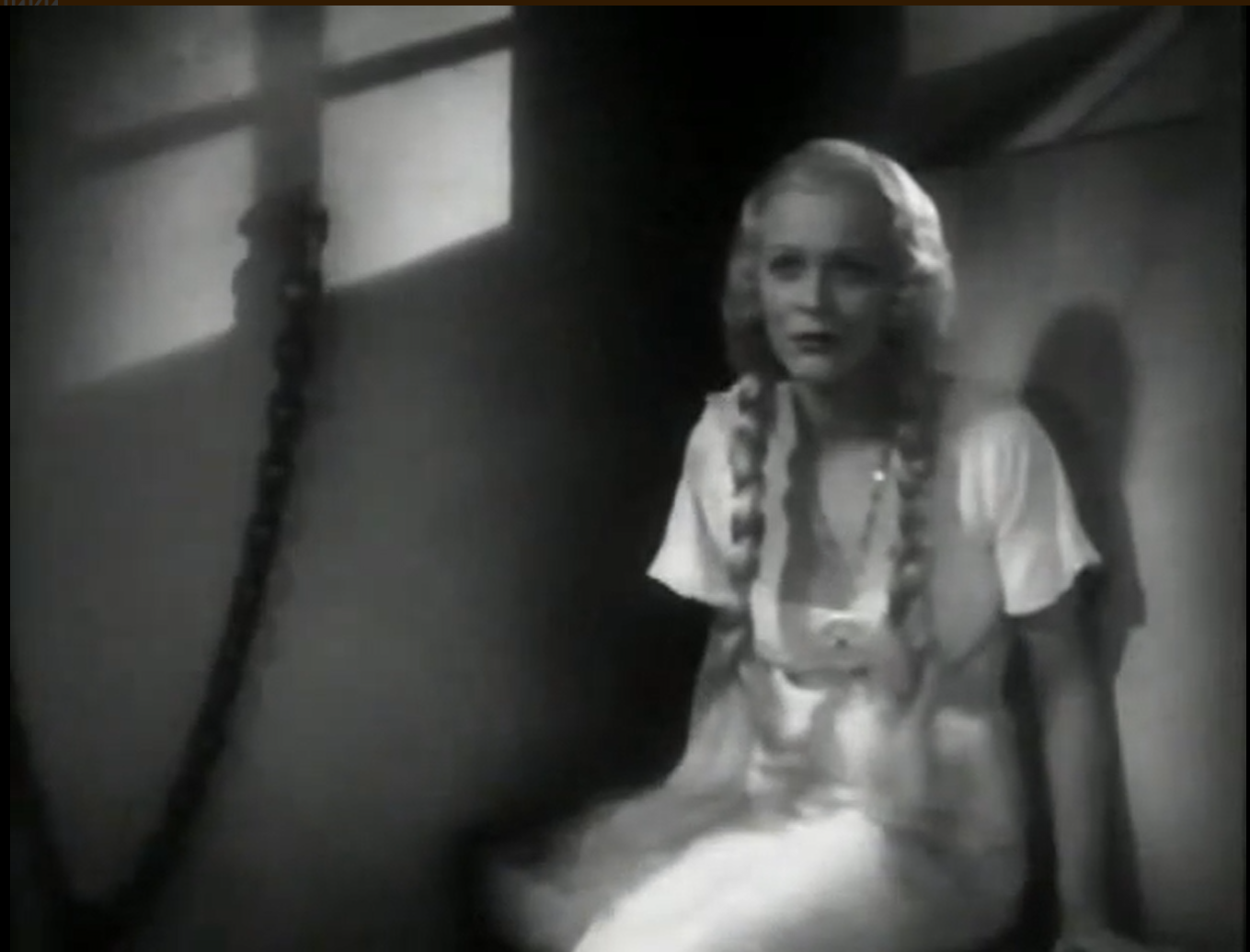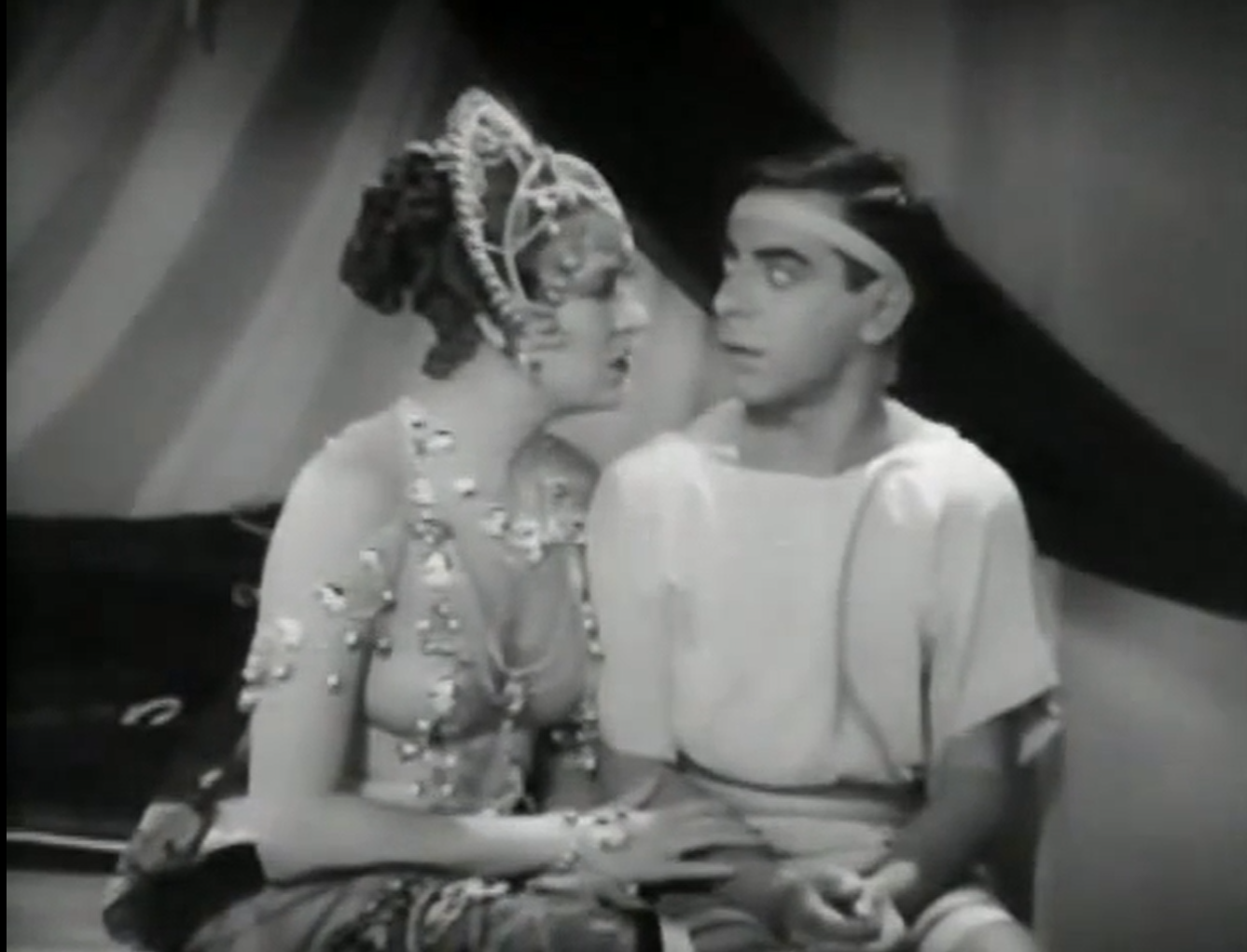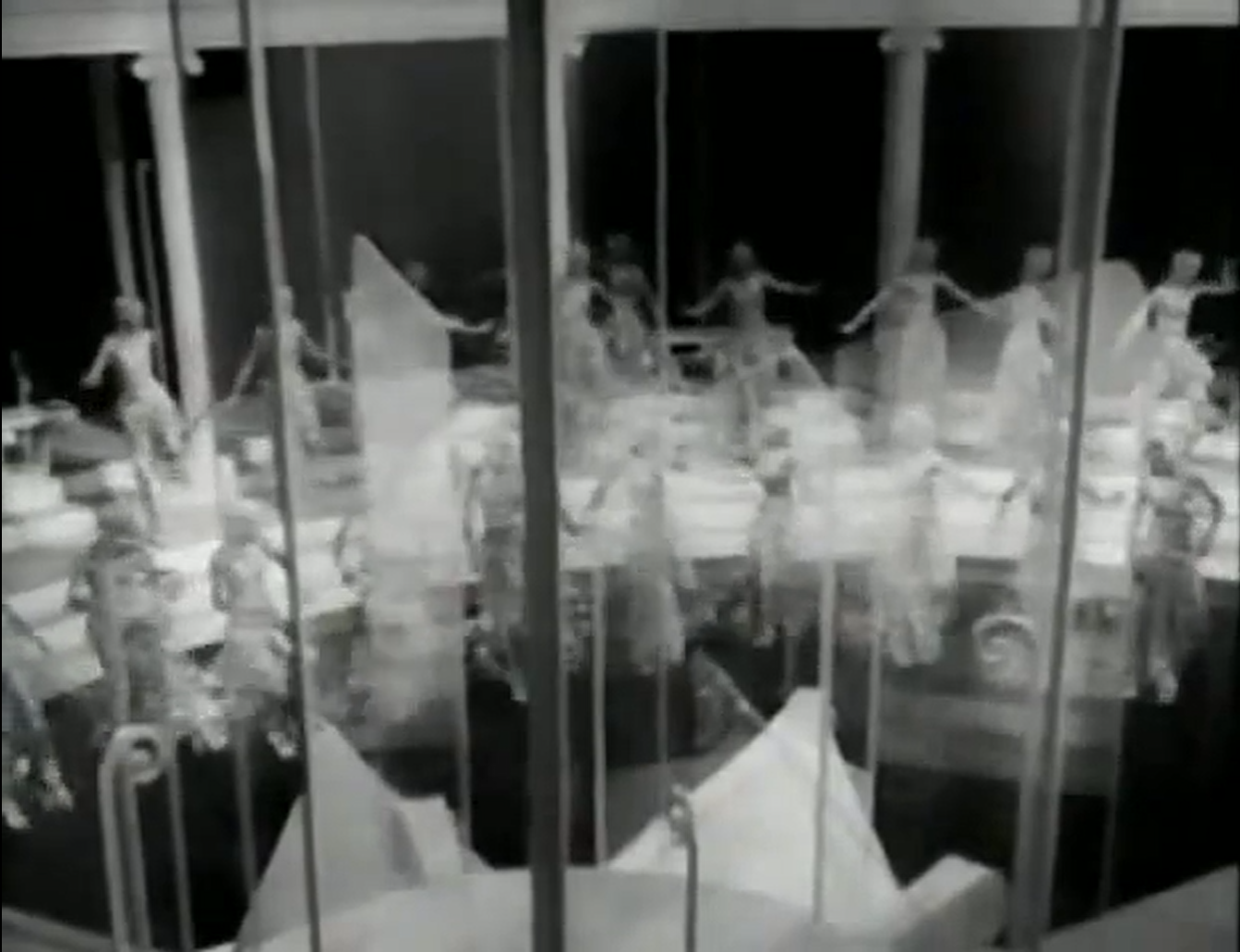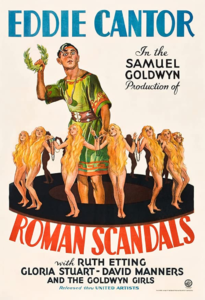|
Genres, Themes, Actors, and Directors:
- Ancient Greece and Rome
- Busby Berkeley Films
- Comedy
- Do-Gooders
- Eddie Cantor Films
- Edward Arnold Films
- Musicals
- Slavery
- Time Travel
Review:
Often cited as one of Eddie Cantor’s best vehicles, this lavish Depression-era musical features two far-out Busby Berkeley sequences, a bevy of nearly-nude “Goldwyn Girls” (including Lucille Ball), and a healthy dose of pre-Code humor (while selling himself on the slave market, Cantor coyly asserts, “I can take care of the children. If there are no children, I can take care of that. By being a son to you!”). In both West Rome and Ancient Rome (where he mysteriously time-travels after being knocked over on the street), Cantor gets to play one of his most likable characters — a genuinely well-meaning if timid guy who takes enormous risks to help others.

Although a little of Cantor goes a long way (and he’s on-screen all the time), fans will have plenty to enjoy. Meanwhile, Gloria Stuart (wearing a long blonde wig) has never been more fetching:

and statuesque Verree Teasdale is humorously villainous as the Emperor’s murderous wife.

Redeeming Qualities and Moments:
- Typically lavish Busby Berkeley musical numbers

Must See?
Yes, simply to see the enormously popular Cantor in one of his best films. Listed as a Personal Recommendation in the back of Peary’s book.
Categories
Links:
|





One thought on “Roman Scandals (1933)”
First viewing. A must, of sorts – mainly for its place in cinema history.
Can’t say I’m ultimately won over by the charms of Eddie Cantor. He’s breezy enough here but simultaneously a bit forced. Could be the fault of the cornball jokes – which, odd exception notwithstanding, are mostly what he has to work with. I realize the humor is of a way different era – but The Marx Brothers were around in the same year with ‘Duck Soup’, which holds up beautifully by comparison.
Cantor isn’t downright annoying and he does have a nice-enough singing voice – I just don’t see all that much that makes him particularly unique. It’s possible both Woody Allen and Pee-wee Herman watched Cantor; you can ‘see’ them both in here. You can also hear a number of jokes that somehow made it into other films later: the one routine which stands out is ‘the one without the parsley is the one without the poison’; this would show up years later in different form, but famously, in ‘The Court Jester’.
Those surrounding Cantor come off a lot better: Stuart, Arnold, Teasdale, David Manners, and Ruth Etting with her rendition of ‘No More Love’. (Doris Day would, of course, play Etting years later in ‘Love Me or Leave Me’.) The other songs by Harry Warren and Al Dubin lend much needed liveliness – esp. ‘Keep Young and Beautiful’. (Annie Lennox recorded that once and I often wondered where the song came from.) FFs will also witness wonderful early work by DP Gregg Toland. And Berkeley’s work here, though not his most creative, certainly helps as well.
Director Frank Tuttle shines when called on to make the chariot race finale dazzling. It is.
So, much here does ‘help’ – but I’d say FFs will, overall, find this a curio, one which has more impact as a group effort than it does as a star vehicle.